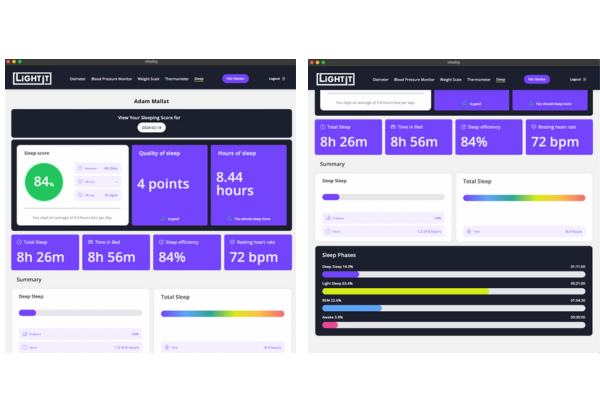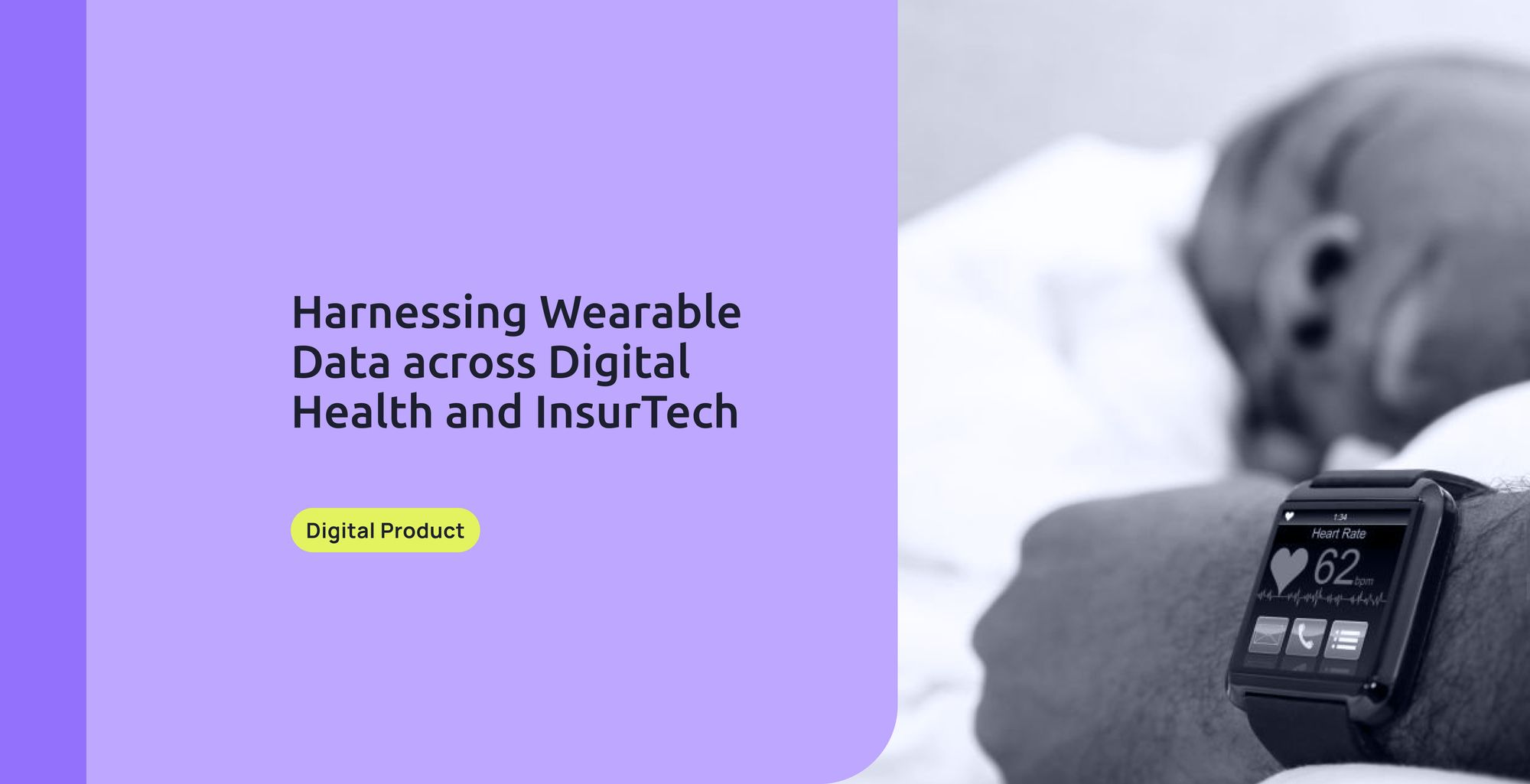In the field of wearable technology, the strategic integration of data transcends industry boundaries, offering plenty of opportunities for impactful utilization. From digital health to InsurTech and Pharma, businesses are harnessing wearable data to drive life-changing outcomes.
Let's explore how wearable data can be leveraged across various verticals:
1. Personalized User Insights
In the 24/7 generated data by wearables, there is plenty of opportunity to uncover valuable insights that can personalize the experience for patients or users. This presents many opportunities across various use cases - guiding patients and users on their journey.
- Digital Health (Remote/Home Health Monitoring): Wearable biomarkers enable personalized, real-time data collection, empowering healthcare providers to monitor patients' health status remotely. By analyzing wearable data, clinicians can detect early signs of deterioration in patients with chronic conditions, facilitating timely interventions and reducing hospital readmissions.
- InsurTech (Underwriting Use Cases): InsurTech companies leverage wearable data for accurate risk assessment, offering personalized insurance plans based on individuals' health profiles. By incentivizing policyholders to adopt healthy behaviors through wearable data, insurers mitigate risks and improve customer satisfaction.
2. Impact Validation
When it comes to Impact Validation, wearable data serves as a valuable resource due to its continuous stream of data over extended periods. This data can be leveraged to validate whether certain interventions or behavioral changes indeed have the desired impact on outcomes. It represents a compelling use case across various industries.
- Digital Health (Telemedicine): Wearable data enhances telemedicine consultations by providing clinicians with real-time health metrics. Patients can share their wearable data during virtual consultations, enabling more informed decision-making and personalized care delivery.
- Pharma & Drug Discovery (Decentralized Clinical Trials): Wearable technology facilitates decentralized clinical trials, revolutionizing traditional research approaches. Real-world health data collected from wearable devices offers insights into medication adherence, symptom progression, and treatment efficacy, enhancing patient engagement and study outcomes.
3. Data-Driven Product Development
Another advantage of wearable data is its ability to reveal trends and segments within the overall population dataset. This facilitates improved decision-making at the product development level, as we possess more data to inform our choices.
- Digital Health: Biomarker data drives innovative product development, revealing unique insights into user behavior and needs. By analyzing wearable data, healthcare companies develop bespoke health solutions tailored to individual needs.
- InsurTech: Wearable data fuels product innovation in insurance, enabling the creation of customized insurance plans based on individuals' health data. Insights from wearable data inform the development of policies that promote preventive healthcare measures and early interventions.
4. Promotion of Healthy Behavior
Closely aligned with personalizing the experience for each user or patient, we can encourage healthy behavioral changes by incentivizing patients or leveraging insights that can have the most significant impact on their health.
- Digital Health: Insights from biomarkers incentivize healthy behavior and support lifestyle changes. By gamifying health goals and offering personalized rewards based on wearable data, individuals are encouraged to adopt and maintain healthier habits.
- InsurTech: Wearable data incentivize policyholders to adopt healthy behaviors, reducing medical costs and mitigating the financial burden of chronic diseases. By offering discounts or rewards based on wearable data, insurers promote preventive healthcare measures and improve overall health outcomes.
5. Consumer Engagement
Another valuable opportunity in leveraging wearable data is the ability to develop engagement tools and interact with our users/patients in a timely and intelligent manner. This encompasses alerts, push notifications, timed offers, and questionnaires that align with the individual's lived experience and current context.
- Digital Health: Tangible personal health data from wearables boosts consumer engagement, fostering adherence to healthy behaviors. By providing users with meaningful insights and actionable recommendations, healthcare companies deepen their connection with consumers.
- InsurTech: Wearable data enhance consumer engagement in insurance, driving adherence to healthy behaviors and personalized insurance plans. By leveraging wearable data, insurers improve user retention and brand loyalty.
Pilot project: a Light-it & Rook Collaboration
In collaboration with Light-it and ROOK, a pilot project has been created to showcase how this data can be leveraged to enhance the previously mentioned use cases. Below are some screenshots of the pilot.

In this small Proof of Concept (POC) that we created, we analyzed sleep data. Utilizing ROOK's API, we successfully retrieved data from various devices and standardized it into a clean and cohesive format. Subsequently, the Light-it team employed this data to develop a compact dashboard within a web administration. This dashboard provides valuable insights into users' sleep quantity and quality.
If you would like to discuss the previously mentioned use cases further, feel free to reach out. We are more than happy to share additional information and demonstrate successful implementations of wearable data across any of the mentioned experiences.



